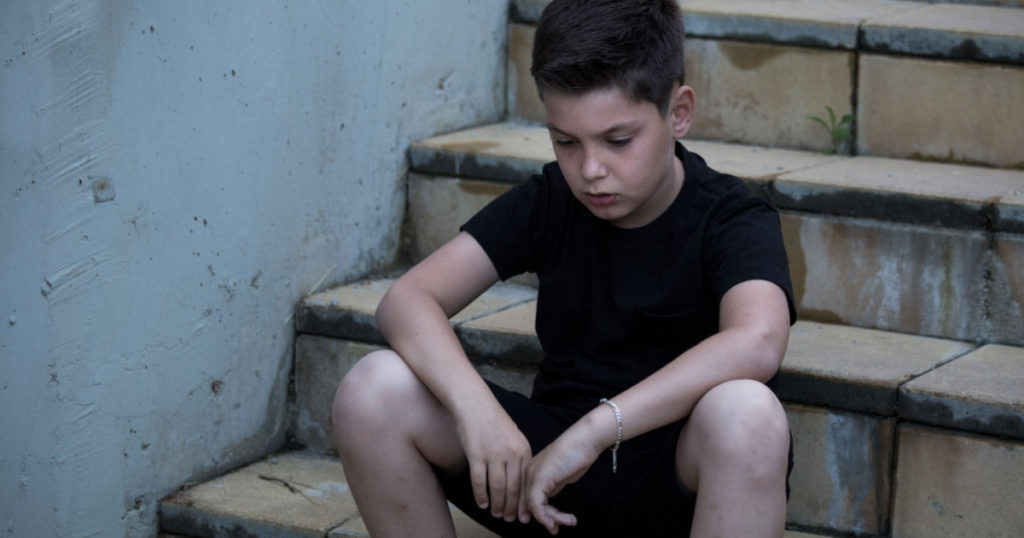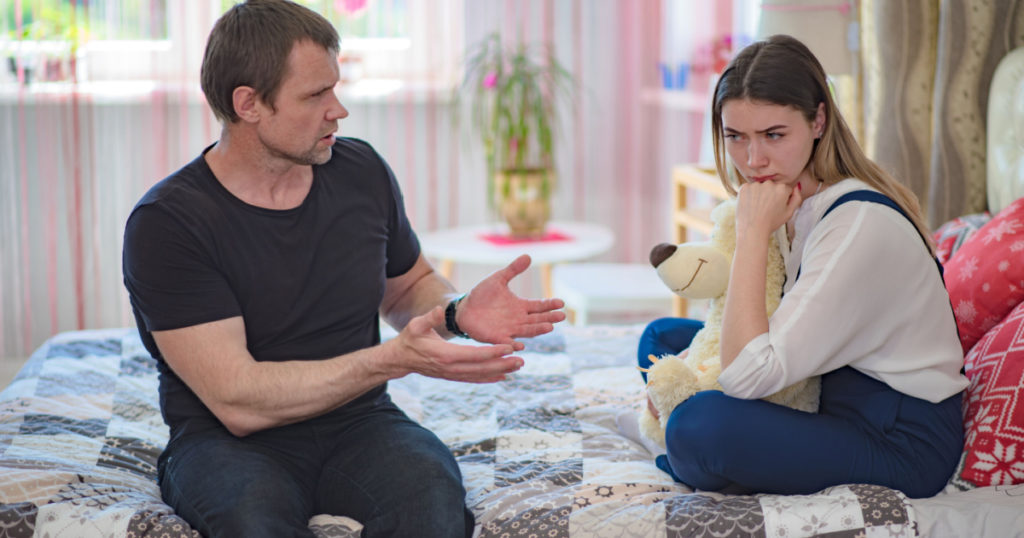Emotional abuse is often overlooked, but it can be just as damaging to your mental health as physical abuse. You probably don’t think you had an emotionally abusive mother or parent, but it’s possible that you did. Emotional abuse can be extremely damaging to a child’s development and sense of self-worth. It can also cause long-term effects that persist into adulthood. Here are some signs that you were raised by an emotionally abusive mother.
Read: Signs of Anxiety in Children: Emotional, Behavioral, Physical, and How to Help
Were You Raised By An Emotionally Abusive Mother?

Emotional abuse is a pattern of behavior in which one person controls the thoughts, feelings, and behaviors of another person through verbal abuse, threats, humiliation, or intimidation. If you were raised by an emotionally abusive mother or parent, then you may be struggling with the effects of that abuse. It can be hard, however, to tell if you experienced abuse as a child, especially when the abuser is the person or people who are supposed to love and take care of you. (1, 2) Even as an adult, it can be hard to realize or accept that your parents did or still abuse you emotionally. If you’ve ever wondered if your parents were emotionally abusive, here are some signs that could indicate that they were or perhaps even still are. (3)
1. They use guilt trips to manipulate you into doing things they want

The most common way that parents emotionally abuse their children is through guilt trips, which are a form of manipulation. The parent will use any means necessary to get what they want out of their child. They might say things like, “If you don’t do this for me right now, then something bad will happen,” or “I’m so disappointed in you.” This kind of emotional abuse can lead to low self-esteem and depression in children who feel that they are not good enough as people.
Read: Why Toxic People Will Never Admit They’re Wrong
2. They make fun of your appearance or weight in front of others

Parents who emotionally abuse their children will often use weight or appearance as a tool for shaming the child. They may make fun of your weight in front of friends or family members, or tell you that you need to eat healthier foods because “you’re getting fat.” This kind of emotional abuse can lead to eating disorders and body dysmorphia later in life.
3. They put down your friends and family members

Emotional abuse can also be seen when parents put down your friends and family members. They may make fun of their clothes or looks or tell you that they are not worthy of being in your life. This kind of behavior can cause children to feel isolated and alone, which makes them more vulnerable to future abuse.
4. They are jealous of your achievements and accomplishments

While some parents push their children to achieve the success that they feel they never achieved themselves, others put down their children’s successes. Again, this is because of their own insecurities. Their child achieving what they never did makes them feel bad about themselves. They may make fun of you for getting good grades, making the honor roll, landing a job or getting married. This kind of behavior can cause children to feel like they will never be good enough or that they must work harder to win their parents’ approval.
5. They frequently criticize your behavior and choices

A parent who constantly criticizes your choices or behaviors is an emotionally abusive parent. They may call you names, make fun of you or put down your interests and hobbies as being stupid or worthless. This kind of behavior can cause children to feel that they are not good enough, smart enough or strong enough to do anything right in their parent’s eyes.
Read: Dad Refuses To Accept Daughters Vegan Friend Because of Her Food Choices
6. They tell you that no one else will love you or care about you

A parent who constantly tells their child that no one will love them or care about them is an emotionally abusive parent. They may say things like “nobody wants to play with you because they think you’re weird,” “you’ll never find a boyfriend or girlfriend because no one likes you” or “no one will ever want to marry someone as fat and ugly as you.” This kind of behavior can put children’s self-esteem in the gutter, cause them to question themselves and make them feel worthless. They may also try to isolate their children from others in an attempt to control them. They may tell you that no one else will love you or care about you and that they are the only ones who can protect or provide for you. This can cause children to feel like they have nowhere else to turn when things get difficult.
7. They blame problems on things outside their control (such as other people) instead of taking responsibility for themselves

Children who are raised by narcissistic parents may grow up feeling like they can never do anything right and that they are responsible for all of their parent’s problems. These children may have a hard time developing healthy self-esteem because they feel like they have to be perfect in order to please their parents.
Read: Dads: Treat Your Wives The Way You Want Your Daughter To Be Treated – Like A Queen
8. They made the decision for you without consulting you first

Narcissistic parents often make decisions for their children without consulting them first. These parents may not listen to what their children have to say and instead use them as an extension of themselves. This can be extremely damaging because it teaches children that they don’t matter, that they’re not important enough to be heard or listened to by their caregivers.
What to Do If You Have Emotionally Abusive Parents

If you grew up with emotionally abusive parents, what do you do about it now? The first step is to recognize that you have been emotionally abused and that it was not your fault. It can be difficult to admit this, but it’s important to acknowledge the fact that someone else’s behavior has affected you in a negative way. Next, seek therapy or counseling so that you can process your feelings about what happened and learn how to move on from it. (4)
You Have a Choice

It’s also important to remember that you don’t have to be a victim forever. You can choose not to allow your parents’ behavior to control how you live your life. You are not responsible for their happiness or well-being, and they do not have the right to hurt you in order to get what they want. Finally, learn how to set boundaries. You do have the right to say no when someone tries to manipulate you into doing something you don’t want to do. It is also important that you are able to say no without feeling guilty about it or apologizing for saying no.
Keep Reading: Narcissistic Children Are Raised By Parents Who Do These 8 Things
Sources
- “Signs of Emotional Abuse From Parents.” Very Well Mind. Sanjana Gupta. August 08, 2022.
- “15 Signs You Have An Emotionally Abusive Mom, According To Therapists.” Romper. Lauren Schumacker. July 9, 2018.
- “How to tell if you’ve been emotionally abused by your parents: 6 things parents do that are extremely harmful.” Insider. Rebecca Strong. May 12, 2022
- “Healing from an Emotionally Abusive Mother.” Psych Central. Dr. Sharie Stines, LPCC. May 22, 2019

